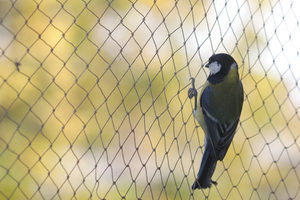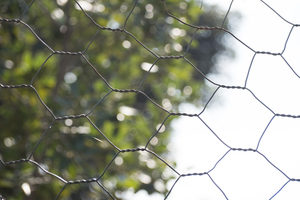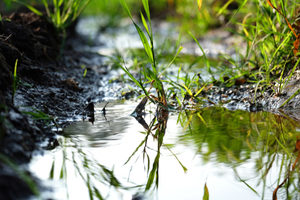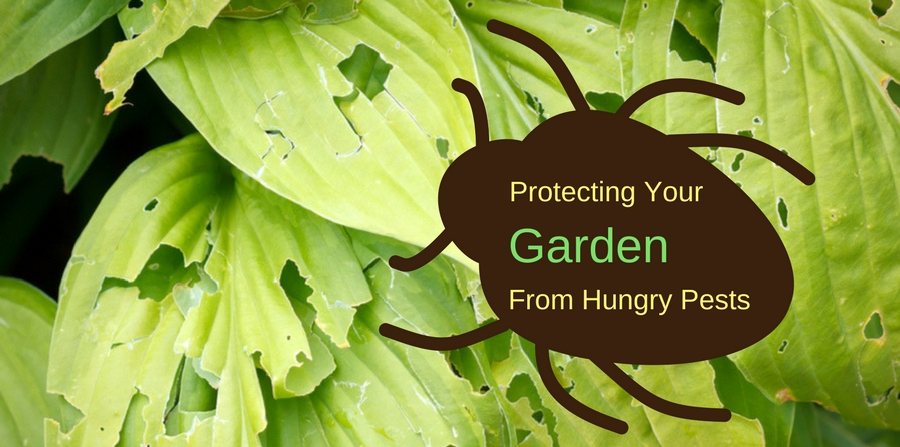Pests are the shadows that loom large over the humble hobby of gardening. It’s somehow not enough for pests like stink bugs, boxelders, cockroaches, aphids, or earwigs to bother you at home. They have to come after your pastimes too. That’s just not fair.
It’s easy to despair about pest problems in your garden. Believe it or not, however, not only is garden pest prevention possible, it’s completely feasible. All it takes is some patience, a little work, and the right ideas. Luckily, we’ve already done the work of collecting the right ideas for you here. Follow each of these quick tips, and you’ll be amazed what a difference it makes in your garden. Don’t let pests have your garden. Instead, try…
Bird netting
 Obviously, bird netting was designed to restrict birds from accessing gardens, but it’ll work on other flying pests too. Bird netting is a relatively simple product you can find at most hardware stores.
Obviously, bird netting was designed to restrict birds from accessing gardens, but it’ll work on other flying pests too. Bird netting is a relatively simple product you can find at most hardware stores.
To use it, you simply spread the large, lightweight plastic or fiber mesh net over the area you want to protect. All you’ll really need is a frame of some kind to drape the next over. Make sure you install the netting high enough that it doesn’t smother your plants. You wouldn’t want to kill your garden while trying to save it!
Soapy water
Common garden pests like aphids and stink bugs hate soapy water. Spraying them with soapy water will kill them effectively, and it’ll also wipe out the pheromones they secrete to communicate with each other.
Even if you can’t find the pests themselves, misting plant leaves with soapy water will help deter stink bug and aphid damage. Be careful not to use too much, or you could harm the plants. A light misting will be sufficient to make pests think twice.
Smelly plants
Just like certain garden plants attract pests, other plants will deter them. Most pests are particularly sensitive to strong smells. Growing some particularly smelly plants alongside other garden plants will help make your garden far less pest-attractive.
The specific things you’ll want to plant depends on what you want to keep out. Rosemary, garlic, and lavender will help keep wildlife away from your vegetables. Marigolds help deter several kinds of insects. Pennyroyal helps repel ants. Other herbs such as mint, fennel, or basil can help with aphids and potato beetles.
Chicken wire fencing
 Chicken wire fencing works great for protecting against bigger pests. It’s simple, tough, easy to install, and it still lets sun into your garden. To start, get some chicken wire from your local hardware store. Make sure you get enough to build about a three-foot high fence around the perimeter of your garden. Give yourself an extra inch or so of wiggle room, because you’ll want the fence to protect against burrowing pests, too.
Chicken wire fencing works great for protecting against bigger pests. It’s simple, tough, easy to install, and it still lets sun into your garden. To start, get some chicken wire from your local hardware store. Make sure you get enough to build about a three-foot high fence around the perimeter of your garden. Give yourself an extra inch or so of wiggle room, because you’ll want the fence to protect against burrowing pests, too.
To build the fence itself, attach the chicken wire to several sturdy posts. Make sure the posts you choose aren’t themselves vulnerable to pest attack! Dig trenches around the fence so you can bury the bottom of the fence, too. Chicken wire fencing alone won’t keep out insect pests, but it will help against particularly destructive wildlife.
Row covers
Row covers are light plastic sheets traditionally used to protect plants from frost. They’re spread over the top of individual rows, only inches above the tops of plants. Look for varieties that are thin enough to let sunlight and water through, so the plants don’t starve.
Row covers work best for protecting young, vulnerable plants that you’ve just planted. They’re an effective means of preventing caterpillars, birds, and other smaller pests from preying on new plants. Eventually, the plants will (hopefully) grow too tall for row covers to protect them. When that happens, make sure to remove the covers before they get in the way.
Debris control
The more shelter you give pests, the easier it’ll be for them to infiltrate your garden. Fallen leaves, branches, tall grass, weeds, and other cover will all help pests more comfortably access your garden.
Take a few minutes every time you’re out in your garden to clear space. Pull weeds out, gather fallen branches, and remove dead plants. It’s not a lot of extra work and it’ll go a long way toward pest-proofing your garden.
Moisture control
 All kinds of pests are attracted to excess moisture. When you overwater your plants, water collects in the soil or on surfaces. Pests will come for that water, and stay to eat your plants.
All kinds of pests are attracted to excess moisture. When you overwater your plants, water collects in the soil or on surfaces. Pests will come for that water, and stay to eat your plants.
Take care to water your garden only as much as is necessary. Ensure that any excess water is draining properly instead of pooling up on surfaces or in the soil. Water is one of the #1 things that attract pests anywhere, so this one is important!
Keep it healthy
Several pests are attracted specifically to rotting or dying plants. Once they’re in your garden, however, they won’t stop there.
Take care to quickly and thoroughly remove dying plants before they attract pests. Dig out root systems entirely, and dispose of the plant away from the garden. Try to figure out why that part of your garden died, and consider replacing vulnerable plants with different types.
If it helps, think of pest prevention as another integral part of gardening. Taking care of your plants isn’t only about feeding and making space for them – it’s about protecting them, too. If you follow the steps outlined above, you’ll be a bona fide plant protector. That’s gotta feel pretty good.
And, as always, remember: if ever you’re struggling with pest problems, you can always give Griffin a call. We’ll thwart your pests at every turn, so you have more time to enjoy your gardening.

